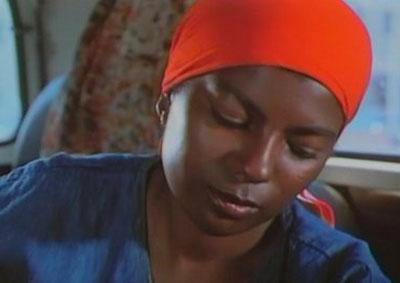Emma Mae (1976)
New print!
Directed by Jamaa Fanaka
Some viewers may know this film as Black Sister’s Revenge, the title under which it has been distributed on video by Xenon. However, director Jamaa Fanaka’s original title—Emma Mae—better captures its status as a sympathetic portrait of a young Black woman from the South and her difficult adjustment to life in the big city. After the death of her mother, Emma Mae (Jerri Hayes) travels by bus from Mississippi to Los Angeles, her rough country edges on full display. She also possesses an extraordinary ability to beat down anyone who disrespects her or those she loves. Emma Mae’s proficiency in kicking ass echoes traits found in super-mama heroines populating other character-named films of this Blaxploitation era (e.g., Foxy Brown, Coffy, Cleopatra Jones), not surprising given Fanaka’s (successful) aspiration to distribute this student film theatrically. But Emma Mae is not presented as an impossibly glamorous vixen. To the contrary, her plain looks and shy demeanor seem to necessitate her physical and emotional strength, particularly when dealing with those who mistakenly underestimate her. It is as if Emma Mae can tap directly into a wellspring of Black women’s latent powers in order to protect and serve her own.
Emma Mae quickly falls for Jesse, a smooth-talking ne’er-do-well who breaks her heart despite her selfless efforts to bail him out of jail, first by running a laborious car wash under the watchful eyes of racist L.A. police, then by making a foray into bank robbery. Fanaka initially primes us for a Cinderella story, in which Emma Mae’s sophisticated, college student cousins mock her backward ways and she’s separated from her Prince Charming just minutes after they come together at a big dance. But Fanaka reverses the formula. Emma Mae’s broken romance, and her L.A. family’s stumble from bourgeois status, forge a powerful sisterly bond virtually absent from Blaxploitation fare. —Jacqueline Stewart
Producer/Screenwriter: J. Fanaka. Cinematographer: Stephen Posey. Editor: Robert A. Fitzgerald. Cast: Jerri Hayes, Ernest Williams II, Charles D. Brooks III, Leopoldo Mandeville, Malik Carter, Synthia St. James, Al Cowat.
35mm, color, 100 min.
New print struck from a 35mm color reversal intermediate and the original 35mm track negative.






 Mobile Navigation
Mobile Navigation

